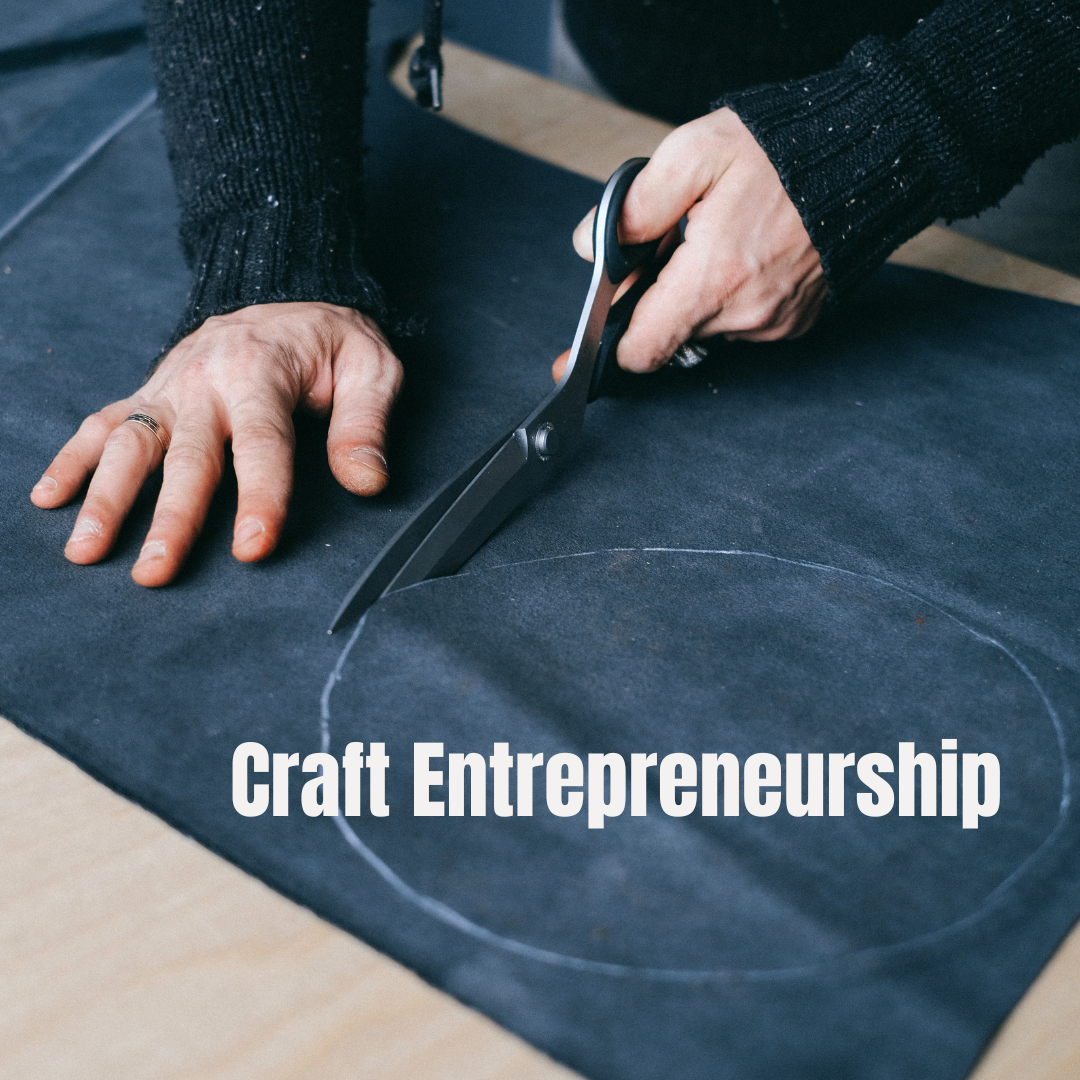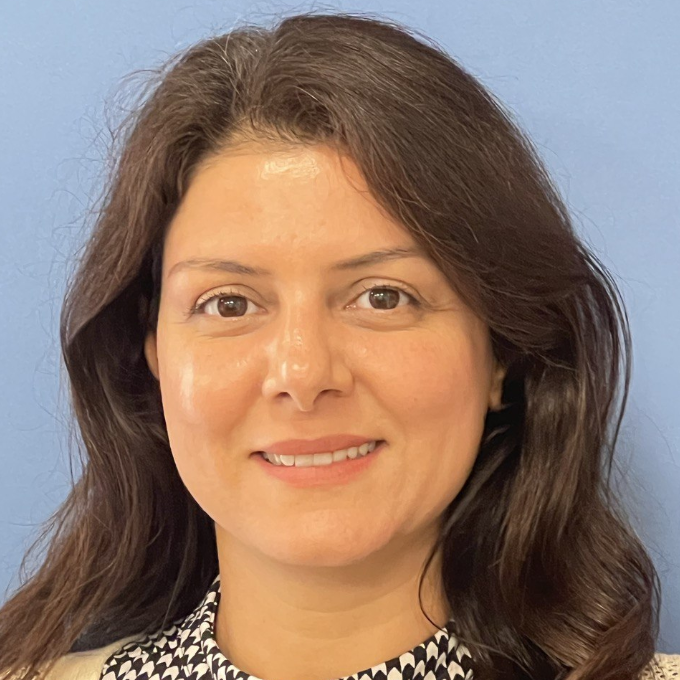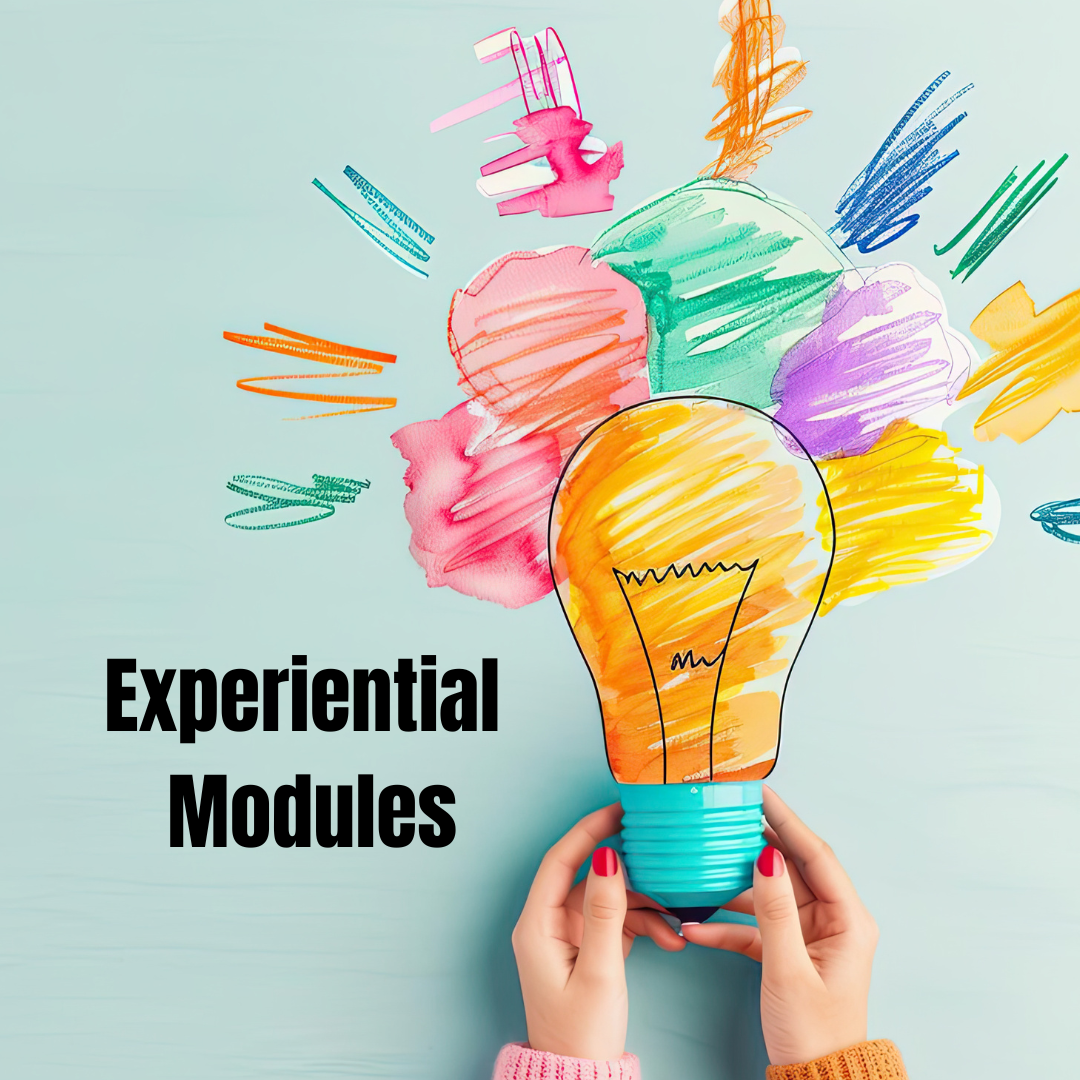Professional Development Projects
Funded by Ciocca Center for Innovation and Entrepreneurship
- Prashanth Asuri, Department of Bioengineering; Laura Norris, School of Law; Kathy Sun, Department of EducationDesign Thinking Workshops
Ciocca Center is hosting a series of workshops to support SCU faculty and staff to integrate elements of design thinking into your existing curriculum and/or the design of student experiences! Register here for the next Design Thinking Workshop! We implement the following incremental stipend program along the workshop and curricular design process:
- $250 for attending workshop
- $500 for implementation of DT into a course or module (proof: syllabus and/or assignment with design thinking learning objectives, estimated number of students impacted, etc.)
- $250 for reflecting on the experience with a broader campus community (proof: written or oral reflection at a department meeting or working group, in a newsletter or blog, etc.)
To obtain the second and third stipend payments, workshop participants would need to submit proof of implementation and/or sharing to the review team.
- IDEO U Online Courses
Learn about Design Thinking from the Experts at IDEO. Ciocca Center is sponsoring SCU faculty and staff for enrollment in any of 3 introductory Design Thinking courses offered through IDEO University. Courses are all online, asynchronous, self-paced, and estimated to take less than 10 hours. In addition to free enrollment, participants completing the course may be eligible to receive a $200 stipend. Interested?
See the details of IDEO U 22-23 Course Selection and Eligibility. Register NOW!
- Travel/Event Grant
Ciocca Center for Innovation and Entrepreneurship conducts research and educational activities to advance innovation and entrepreneurial thinking. Ciocca Center supports Faculty/staff participation in activities such as conferences, meetings and publications. Recipients of this Travel/Event Grant can receive up to $3K per project.
Grant recipients must be presenting work in the field of Innovation and Entrepreneurship. Apply Now.
Research Projects
Funded by Ciocca Center for Innovation and Entrepreneurship
- Andy El-Zayaty, Leavey School of BusinessAgeism and Entrepreneurship's Innovative Framing
The goal of this project is to explore the role of ageism in entrepreneurial settings, with a particular focus on the nature of the relationship between entrepreneurs’ framing of their projects and the responses of potential funders to those framings relative to the perceived age of the entrepreneur.
Specific questions we seek to answer are as follows:
- Do older entrepreneurs receive reduced interest from investors in general, relative to younger entrepreneurs?
- Do older entrepreneurs receive a penalty to interest (relative to younger entrepreneurs) from investors when they frame their products as innovative?
- Do these penalties hold when the age of the investor matches that of the entrepreneur, or does age-matching between investors and entrepreneurs eliminate an age penalty?
- Are these penalties related to gender?Learn more about researcher Andy El-Zayaty
- Jo-Ellen Pozner and Jennifer Woolley, Leavey School of BusinessDriving Innovation by Making Space for New Voices in Craft EntrepreneurshipWhere does innovation come from in consumer-oriented craft industries? Preliminary results of the inductive study of craft entrepreneurs in bean-to-bar chocolate and distilled spirits suggests that innovation is driven by the inclusion of people from diverse backgrounds. During the 2024-2025 academic year, this project will complete a deeper dive into this topic by examining relationships among entrepreneurship, innovation, diversity, and inclusion in craft industries. Funding will be used to attend two industry conferences to better understand the field, observe craftspeople at both conferences and in their businesses, recruit new subjects, and transcribe interview data.
Learn more about the researchers Jo-Ellen Pozner and Jennifer Woolley.
- Fatemeh Davoudi, School of EngineeringAssessing the Impact of AI and Assistive Technologies on Entrepreneurial Growth and Workforce Inclusion in Manufacturing
This research examines the transformative impact of Artificial Intelligence (AI) and assistive technologies on the manufacturing sector, with a focus on fostering entrepreneurial growth and creating a more inclusive workforce. By evaluating the current integration of AI and assistive tools, such as passive exoskeletons, the study seeks to understand their potential to redefine business models, market competition, and employment practices.
The study is divided into three interrelated objectives: assessing the role of AI and assistive technologies as drivers of entrepreneurial innovation, analyzing how these technologies contribute to workforce diversity and the inclusion of physically-challenged individuals, and mapping the present state of technology adoption and its perceived benefits and barriers. This approach offers a comprehensive view of the operational, societal, and competitive outcomes shaped by these technologies.Learn more about the researcher Fatemeh Davoudi.
- Kris Mitchener, Leavey School of BusinessRescuing Entrepreneurs through Rebranding
How can one test whether corporate rebranding is a successful strategy? This project examines the value to entrepreneurs of corporate rebranding. The value of a firm’s brand can erode when the existing set of associations of the brand are tarnished. A corporate rebrand potentially sends a powerful signal to stakeholders indicating that the firm is undergoing a transformation. This may be crucial for startups and entrepreneurs of new firms since they are trying to establish a distinct identity to compete in their product space. Whether a firm decides to rebrand ultimately depends on the perceived costs and benefits of doing so, but entrepreneurs lack evidence on whether this a net benefit.
Learn more about the researcher Kris Mitchener.
- Jo-Ellen Pozner, Leavey School of Business Colleen Chien, Berkeley LawThe Innovator Diversity Pilots InitiativeAmerica is a remarkably diverse country, but its inventors and entrepreneurs do not reflect this diversity. Although women comprise nearly 50% of the workforce and 27% of STEM workers, they receive only 13% of patents and 2% of VC funding. (Chien 2022) Even less is known about the share of underrepresented minorities among the inventor population. (USPTO 2019) But while the extent of underrepresentation is uncertain by group, the loss to American innovation and entrepreneurship is not. This project aims to address this gap by advancing the Diversity Pilots Initiative to advance high
quality research on innovation and entrepreneurship among diverse innovators and drive greater participation.Learn more about the researchers Jo-Ellen Pozner and Colleen Chien
- Keyvan Kashkooli, Leavey School of BusinessAn Exit, Not an Entrance: Career Mobility and Employment Opportunities for BIPOC FoundersIncreasing entrepreneurship rates in communities of color is recognized as a valued component of efforts to reduce inequality. There is widespread awareness that increasing rates of BIPOC entrepreneurship offers an important path to reduce social inequality.-- This research aims to fill this gap by analyzing the career trajectory of these founders as they exit entrepreneurial ventures whether through a return to the broader labor force or a continuance of entrepreneurial ventures.
Learn more about the researchers Keyvan Kashkooli and Peter Younkin
- Andy El-Zayaty, Leavey School of BusinessThe Future of the Pitch: Crowdfunding Investor Responses to AI Generated Pitches & Imagery
This study takes a closer look at the impact of Artificial Intelligence and Machine Learning Tools on entrepreneurial pitches in a crowdfunding context. This research will address questions like - Does explicitly noting that text or images were generated by AI tools – regardless of whether they were actually generated by these tools – influence the perceptions of potential crowdfunders? For example, if a pitch is marked as being generated by an AI tool despite being written by a human author (or vice versa), does this impact crowdfunder perceptions? The goal of this project is to explore the ways in which potential crowdfunding investors react to AI generated pitches/imagery.
Learn more about researcher Andy El-Zayaty
- Di Di, College of Arts and SciencesReligious Entrepreneurs and Social Media: Religious Influencers as Digital Entrepreneurs
The aim of this study is to understand the experiences of religious influencers as entrepreneurs through interviewing religious influencers on major social media platforms. This process will lead to understanding how religious influencers use innovative and entrepreneurial strategies to reach their audiences, spread their values, and influence their online communities. Interviews will be conducted online with religious influencers based in the US from a variety of religious backgrounds.
Learn more about the researcher Di Di.
- Jennifer Woolley, Leavey School of BusinessExploring the Relationship Between Genetic Firm Founders’ Gender and Firm Outcomes and Innovation
Studies have shown a dearth of women in STEM entrepreneurship and innovation and have explored reasons why so few women start firms or take innovation related careers; however, few studies look at those who are thriving in these roles. This research examines examine the relationship between gender, educational background, work experience, and genetics firm outcomes to determine what influences success for women entrepreneurs in STEM fields. This project primarily entails interviewing women entrepreneurs of genetics firms to discuss their experiences starting and growing their companies.
Learn more about researcher Jennifer Woolley.
- Hsin-I Cheng, College of Arts and SciencesAsian American Women Entrepreneurs’ Engagement in the U.S. Racial Reality
The purpose of this study is to gain a deeper understanding of how Asian American women entrepreneurs of 1.0, 1.5, and 2.0 generation of immigrants engage in racial dynamics in the United States. The second part of this project furthers the research into an applied project. With experiences learned from Asian American women participants, the significant lessons will be translated into narratives. These “critical incidents” of interactions in the forms of narratives will be recreated into virtual reality content and be used for educational purposes. The final product will be the creation of three to five of VR scenarios.
Learn more about the researcher Hsin-I Cheng.
- Zhiquiang Tao and Yi Fang, School of EngineeringFairness-Aware Talent Management System via Meta Attribute Learning
In recent years, artificial intelligence (AI) and machine learning (ML) based talent management systems have been widely developed to improve recruiting efficiency with large-scale applicants. As a rough estimation, such AI/ML-aided systems have landed in 33% of organizations to assist the processes such as talent search, hiring decision, performance assessment, etc. While these “intelligent” systems greatly facilitate the whole recruitment process, one critical question raises–Are these methods smart enough to make a fair decision?
In this project, the researchers will design and develop a fairness-aware talent management system, which aims to encourage diverse prediction results and alleviate the negative effect from data bias.
Learn more about researchers Zhiqiang Tao and Yi Fang.
- Maya Ackerman, School of EngineeringInvesting in Black Founders: Understanding & Correcting Bias in Venture Capital Allocation
It is well known that the allocation of venture capital funds is highly biased. Yet, despite this wide-spread awareness, bias not only persists, but continues to grow. According to Pitchbook, in 2019, female founders raised just 2.7% of the total venture capital funding invested and mixed gender founding teams received 12.9%. In 2020, funding given to female-only teams dropped to 2.2% with mixed-gender teams receiving just 12.2%. As one of the least represented racial groups in venture, black founders receive only 1% of venture capital funds.
Biases persist despite evidence that diversity offers a performance advantage over homogeneous teams: Racially and ethnically diverse companies are 35% more likely to yield financial returns above their industry medians, and in the United States, there is a positive linear relationship between diversity and financial performance. The same holds for gender diversity.
While it is well-known that entrepreneurs’ race and gender play a role in investor decision making, commonly held beliefs on how bias manifests and what should be done to address it are fraught with error. It is as such unsurprising that efforts to help women and minority founder entrepreneurs are proving ineffective. Lacking an accurate understanding of the situation, well meaning efforts continue to fail and at times even exacerbate the problem.
Learn more about researcher Maya Ackerman.
- Drew Starbird, Jill Martin, Leavey School of Business & Yacanex PosadasThe Motivation and Performance of First- and Second-Generation Latino Small Business Entrepreneurs in Silicon Valley
The purpose of this study is to get a better understanding of the challenges facing Latino entrepreneurs in Silicon Valley. With this understanding, we can identify opportunities for new policies, institutions, and programs that support greater entrepreneurial success in immigrant communities, both locally and nationally.
Learn more about the researchers, Drew Starbird and Jill Martin.
Read their published work here!
- Lanny Vincent, School of EngineeringThe Jesuit Way for Innovation and Entrepreneurship: Pedagogy and Practice
This project is composed of two phases. The purpose of this Phase 1 study is to inventory and assess who is doing what in curricular, co-curricular, and extra-curricular contexts in ten Jesuit Universities in North America that apply Jesuit principles to innovating practice. Phase 2 of the study is envisioned to broaden and deepen the research towards articulating a "Jesuit Way" for the entrepreneurial to innovate. The research of both phases intends to ground answers to three questions in actual practice and experience: 1) Is there a Jesuit way for the entrepreneurially-minded to innovate (not just in commercial or social enterprises)? 2) If so, what is it? and 3) If so, what are the implications for Jesuit Universities in North America?
Read the full research report on A Jesuit Way of Innovating.
Learn more about researcher Lanny Vincent.
Curriculum Development Projects
Funded by Ciocca Center for Innovation and Entrepreneurship
- Laura Robinson, College of Arts and Sciences, Katia Moles, School of EngineeringCreating the Next Generation of Innovators: The Entrepreneurial Mindset Experiential Module (EM2)
This research builds tools and interventions that inculcates an entrepreneurial mindset among Gen Zers.
Deeply rooted in the Ignatian tradition of vocational discernment, this project generates a replicable and
learning-by-doing experiential module. Specifically, the learning-by-doing Entrepreneurial Mindset
Experiential Module (EM2) offers a transformation experience for Gen Zers through the following interrelated steps:
The first stage of EM2 is educational and enlarges Gen Zers’ understanding of entrepreneurship as a
mindset – and not just a business model – with application across professional sectors and personal
life realms as a form of vocational discernment.
The second stage of EM2 is active learning and uses design thinking to invite participants through a
series of learning-by-doing exercises through which they grow their self-identification as innovators.
The third stage of EM2 fuses identity growth with durable skills that transform entrepreneurial
thinking into a lifelong practice inspired by Ignatian pedagogies that our students will take forward
into all facets of their lives.
- Christopher Kitts, School of Engineering Fiona Ji, Leavey School of BusinessEntrepreneurial Mindset Mini-Curricular Development
Ciocca Center promotes the development of the Entrepreneurial Mindset (EM) through a variety of activities to include the teaching of courses. In support of that activity, we propose to administer a ‘mini-grant’ program in which faculty/staff would receive modest support to develop or enhance a curricular component that exposes students to key concepts implicit in the EM. These curricular components might include a small module (perhaps a
single lecture/assignment, lab, etc.), possibly a 1-unit course, or other curricular products. The proposal requests $25,000 to support this effort through to December 31, 2024; an external matching grant of $5,000 may be obtained to enhance this initiative.
- Rachel Brand, Postdoctoral Fellow, Leavey School of Business Erika French-Arnold, Associate Director Leadership for Society, Stanford University GSBFuture of Food Leadership: Society and Culture course development
Many Santa Clara University students are interested in learning how their food is produced, and how production impacts the environment and those who grow their food. Students understand the need to face pressing issues such as climate change and food waste in order to secure a more equitable food system and healthy future for themselves and the planet. The course titled “Future of Food Leadership: Society and Culture” is designed in a survey modality. The objective of the course is to study the existing food system, what works and what does not, and pressing issues such as food access, food justice and food sovereignty. Entrepreneurship is a key component of the course. This course emphasizes cultural competency, societal impacts from food and agriculture and community engagement as crucial to innovation and entrepreneurship.
- Lanny Vincent and Chris Kitts, School of EngineeringExpanded Design Thinking Course Sequence with an International Component
Design Thinking (DT) is a process and suite of techniques centered around creative problem solving. It typically involves the development of deep empathy for those being served, the identification of specific problems, the use of creativity techniques, the development of prototypes, and the evaluation/test of these prototype concepts. As such, it can be considered as an area within the overall domain of the entrepreneurial mindset.
This course will enhance student understanding and practice of DT concepts and principles, challenge students to solve complex problems motivated by the real needs of actual corporate clients, and engage students in collaborative activities with international partners, thereby exposing them to different cultural practices and design considerations and requiring them to operate in a distributed manner with different schedules.
- Keith Yocam and Kathy Sun, School of Education and Counseling PsychologyDesign Thinking for Educational Leadership
This project will develop an online course to support school and district leaders to use design thinking to address organizational and educational challenges at all levels, from day-to-day to more complex problems. Design thinking provides a process and techniques for educational leaders to reframe challenges to create effective solutions. Engagement in design thinking has the potential to support educational leaders’ competence to problem solve and develop their compassion and understanding for the multiple stakeholders in their institutions. Engagement in the design thinking process also has the potential to give voice to those whose voices might often be overlooked in educational settings. As such, design thinking has some alignment to various Jesuit values.
- Erika French-Arnold, Center for Food Innovation and Entrepreneurship, Leavey School of BusinessSustainable Food Systems
This course will enhance students’ understanding of the existing food system and provide a framework for determining how and where they might contribute to a more sustainable and just system. The objective is to study the existing food system, issues of food access, justice and sovereignty as well as opportunities to use technology and innovation to create a more just and sustainable food system. It is designed with multiple experiential learning components, and a focus on utilizing innovative methods to address significant issues in the food system and with a professional component to help students who are interested in transforming the food system to network and learn about jobs in the food industry.
- Jessica Kuczenski, School of Engineering; Christelle Sabatier, College of Arts and Sciences; Sean O'Keefe, Leavey School of BusinessCareer Launch
This course will teach students how to create relationships with professionals to accelerate their career exploration, tap into the hidden job market, and build self-confidence related to career. Career Launch is a social enterprise that was incubated at Santa Clara University and scaled through Sean O'Keefe's participation in the Bronco Venture Accelerator. The purpose of the course is to teach and guide students to be intentional and proactive to build professional relationships from scratch as a means to access the hidden job market. Students will learn how to access companies and organizations they are interested in. As a result of the course, students will increase their self-confidence and professional skills to access the hidden job market.
- Aleksandar Zecevic, Department of Electrical Engineering; Lanny Vincent, School of Engineering; Matthew Gaudet, School of EngineeringEthics, Innovation, and Entrepreneurship - A Jesuit Perspective
This curriculum and staff/faculty development project address issues at the intersection of ethics, innovation and entrepreneurship. In thinking about how Innovation and Entrepreneurship (I&E) align with the culture and values of Santa Clara University, the Jesuit “way of proceeding” has cultivated principles and practices that are precursors to the principles and practices which we now associate with I&E. This project develops course modules that integrate seemingly disparate disciplines such as philosophy, engineering and business. It also offers training to our faculty, and gives them an opportunity to deepen their knowledge on the relationship between ethics, technological innovation and entrepreneurship, including distinctly Jesuit perspectives. Students, staff, and faculty will learn about key concepts that define what is meant by “responsible” innovation and entrepreneurship, and will be able to articulate how these concepts apply to their technical discipline.
























